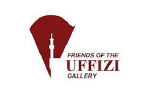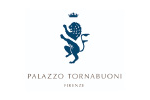



ONLINE THEATER COURSE
Shakespearean Comedy, Italian Style
LIVE THEATER COURSE with Dr. Eric Nicholson
Dates: June 8, June 15, June 22
Schedule: Wednesdays
Time: 2:00 – 3:15pm ET | 11:00am – 12:15pm PT |
7:00 – 8:15pm London
Contact Hours: 4 Hours
ONLINE THEATER COURSE
Shakespearean Comedy, Italian Style
Course Description:
Not only are half of Shakespeare’s more than thirty plays set in Italy, but his dynamic and provocative drama makes crucial use of numerous Italian plots, tropes, character types, theatrical devices, and cultural connotations. In particular, his comedies remain fresh and vigorous today thanks to the lively contrasts and rich variety of their Italian style. In this course, we’ll pursue close comparative study and interactive discussion of three well-known, much-admired, and frequently performed plays, to enhance our understanding of how their Italianate qualities continue to spark both abundant laughter and serious thought across the globe, over four hundred years after their first productions. By focusing on selected scenes from The Taming of the Shrew, Much Ado About Nothing, and Twelfth Night, we will be able to gain fresh insights into the parallels and differences among these comedies of love, and pursue informed conversations about their respective treatments of such matters as master-servant relations, generational conflicts, courtship and competition between the sexes, unconventional gender roles, and the powers of witty play-acting.
A special feature of the course is the opportunity to imagine and propose specific ways for bringing these classic Italian style plays from the page to the stage. Participants will be encouraged to approach them as inter-active scripts that pose challenging questions and invite a wide variety of interpretations, precisely because of their creative, often volatile, and always stimulating mix of English and “made in Italy” qualities.
Course Objectives:
Instructor:
For the past twenty years, Eric Nicholson (Ph.D., Yale University) has been teaching courses in literature and theatre studies at Syracuse University Florence, and at New York University, Florence. At both these venues and elsewhere, he has also directed numerous productions of classic plays, among them Shakespeare’s A Midsummer Night’s Dream, Much Ado About Nothing, and The Tempest. Beyond lecturing, directing, and publishing widely in his field, Eric’s professional activity extends to acting, voice work, and public presentation: credits include Oberon in the Maggio Musicale Fiorentino production of Purcell’s Fairy Queen (Teatro Goldoni Florence, 2013), and Fool/Theseus in “Promised Endings: an Experimental Work-in-Progress based on Oedipus at Colonus and King Lear” (Verona, 2018). He is the narrator of the English video documentary for the Museo dell’Opera del Duomo, Firenze, and of English audio guides to museums in the Tuscan cities of Grosseto, and Massa Marittima. In full historical costume, he has appeared as Lorenzo the Magnificent, Leonardo da Vinci, and others in several live performance events, videos, and broadcasts, and most recently (2021) as Dante and Boccaccio for Rocky Ruggiero: Making Art and History Come to Life.
Virtual Classroom: Full access to an online educational platform with syllabus, videos of recordings, reading list, podcasts, discussion forum, and more.
Location: LIVE INTERACTIVE ON-LINE THEATER LECTURES
Optional Readings:
Readings to be provided to students in PDF format prior to the beginning of course.
Complete syllabus will be provided upon registration.
LECTURE 1 - AN ENGLISH PRACTICAL JOKE TURNS INTO AN ITALIAN STYLE COMEDY: THE TAMING OF THE SHREW
-Thursday, June 8
A drunken tinker named Christopher Sly falls asleep outside a tavern near Shakespeare’s home town of Stratford-upon-Avon. Much to his and the audience’s surprise, he is transformed into a “Lord” with a devoted “Lady,” and given an exclusive performance of a thoroughly Italian comedy, set in Padua and filled with “commedia dell’arte” elements… and thus the surprises as well as the laughs keep coming, about courtship, marriage, male and female identities, and much more.

LECTURE 2 - WITTY DUELS, MASKED BALLS, AND FRENEMY LOVERS IN RENAISSANCE: MUCH ADO ABOUT NOTHING
-Thursday, June 15
What has made this comedy a perennial favorite? Not just the witty banter between the frenemies Beatrice and Benedick and the amusingly manipulative tricks that their friends play on them, but the specifically Sicilian energies that appear in the play’s honor-conscious family relationships, its vivid use of festive masks and music, and its bringing back to life of an innocent maiden “killed” by slander. The play’s Italianate charisma also emerges through the dominant motif of Fashion.

LECTURE 3 - DESIRE, DISGUISE, AND DELIRIUM, FROM SIENA TO LONDON VIA ILLYRIA: TWELFTH NIGHT
-Thursday, June 22
Twelfth Night takes place in Illyria (modern-day Albania), but its “witty fool” Feste and foolishly lovestruck characters—Orsino, Viola, Olivia, Malvolio, Maria, et al.--have conspicuously Italian names and ways of expressing themselves. This is no accident, because this brilliant late Elizabethan play of desire, disguise, and multiple changes is itself a transformation of a classic Renaissance comedy first performed in Siena, Gli ingannati (“The Deceived”).

For the past twenty years, Eric Nicholson (Ph.D., Yale University) has been teaching courses in literature and theatre studies at Syracuse University Florence, and at New York University, Florence. At both these venues and elsewhere, he has also directed numerous productions of classic plays, among them Shakespeare’s A Midsummer Night’s Dream, Much Ado About Nothing, and The Tempest. Beyond lecturing, directing, and publishing widely in his field, Eric’s professional activity extends to acting, voice work, and public presentation: credits include Oberon in the Maggio Musicale Fiorentino production of Purcell’s Fairy Queen (Teatro Goldoni Florence, 2013), and Fool/Theseus in “Promised Endings: an Experimental Work-in-Progress based on Oedipus at Colonus and King Lear” (Verona, 2018). He is the narrator of the English video documentary for the Museo dell’Opera del Duomo, Firenze, and of English audio guides to museums in the Tuscan cities of Grosseto, and Massa Marittima. In full historical costume, he has appeared as Lorenzo the Magnificent, Leonardo da Vinci, and others in several live performance events, videos, and broadcasts, and most recently (2021) as Dante and Boccaccio for Rocky Ruggiero: Making Art and History Come to Life.

Sold Out













